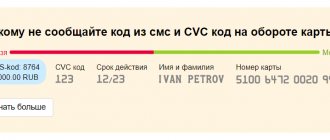Interview with a Skype scammer
A few days ago, Sergey Dolya talked about how scammers hacked into his friend’s Skype and began sending messages to his contact list asking him to transfer money. In just a few hours, the attackers, according to Doli himself, managed to obtain more than 250,000 rubles. tjournal also wrote about this.
The divorce scheme is far from new. One of the most famous stories on this topic was described almost two years ago. I’m embarrassed to admit, but about a year ago I myself became a victim of the same (same?) scammers. One of my old acquaintances, from whom I had not heard anything for a long time, suddenly wrote with a request to transfer some money, because “I really needed it.” Yes, yes, I know, “how is this possible,” “what a sucker,” and all that. In general, I just wish you not to get caught.
But just the other day, another one of my contacts, with whom I also had not corresponded for a long time, unexpectedly wrote and... yes, asked to lend several thousand. This time, of course, I understood everything from the first two sentences, but I decided not to kill the intrigue, but to have a little fun. However, nothing funny came of it. I was wondering what the scammer would do when he discovered that nothing had arrived in his account, although the victim confirmed the transfer. In fact, it turned out that the person on the other side cannot always check the account into which he asks to deposit money.
From Doli’s article I remember a screenshot in which one of his friends asks scammers to give an interview, but they refuse. Well, since such a chance presented itself, I also decided to ask for an interview. Unexpectedly, I was able to get answers to many interesting questions. Below I present our dialogue in minor artistic adaptation.
It is clear that this does not qualify for a full-fledged interview, the person on the other side, whatever one may say, was at “work”, so he answered briefly and dryly, and I rather did not ask questions, but tried to make assumptions that could be briefly supplemented or refute.
Divorce
Interview
Having convinced myself that I won’t be able to play the scammer, I ask for an interview.
Unfortunately, I didn’t have time to take all the screenshots (now the owner has restored access, and, for some reason, all the correspondence disappeared up to a certain point, while the last part of the “interview” is still there), there below a friend complains that such requests interviews have become more frequent, and they are tired, wow. He hesitates a little, but eventually agrees.
About work"
— How many people work for you?
— For the people — 11 offices, 7 in the Russian Federation and 4 more in the CIS. I don’t know how many people are in each office. In ours there are 7, but in shifts. I saw two more people, if their shift is the same, then in total we have 14.
— How is anonymity ensured?
— From what I know: there are proxies and VPNs, and somehow the connection is made through Dedik.
— How are accounts hacked? Who is doing this?
— Akki are taken away, I don’t know how, they are simply given to us.
— Are the wallets into which the money is poured stolen, too?
— We drain only those that are given to us. I don't know where they come from.
- So, your task is only to properly breed? Some kind of operator-psychologists?
- Exactly.
You are allowed into the office only after reading two books on psychology. A sucker is not a mammoth, a sucker will not go extinct. - Unfortunately, you can’t argue with this.
- That's how we live.
- And there is this kind of trick when a person can’t cheat on kiwi, but he can, say, on POISON. Then he is asked to throw another victim at the poison, and they ask him to throw this one at the kiwi. Does this happen often? Having trouble keeping two victims in sync?
- No, we also have poisons, they’re just more expensive to personalize, so they’re given to us less often.
Well, in general, the decree is that it is better not to translate them. — Apparently, last time I came across a competing organization.
About money
— How do you get your salary?
- Cashless.
— Does it depend on the volume of “profit”?
- Of course, directly.
-Can you at least name the order?
Tens of thousands, hundreds? - 100 thousand per month and free.
40% for you. If it’s more than 100 a month, it’s 50%, but you can’t take more than 14 thousand from one victim, and you can’t take more than 200 thousand a month either. — Why is there an upper monthly limit?
What's the point? Are you afraid that you will get rich too quickly and leave? - No, I think they just have some limits on cash withdrawals. That's why they limit it.
About safety
— Are there any fears that they will get caught?
Does the employer somehow guarantee safety? “I think the security measures they put in place are enough.” In any case, if anything happens, we are under pressure. If you don’t work, they will find something for you. Or they will do something... I don’t want to talk about it now.
— Is this your main job? Or just as a part-time job?
— A part-time job that turns into your main job if you work well.
— Well, 50% with a maximum of 200k is 100k per month.
Doesn't sound like a good salary for this type of work to me. - Well, yes, more like a part-time job.
Subtleties
— But in fact, the most interesting thing I always wanted to ask: when you get a Skype account, do you read the previous correspondence in order to better join the conversation?
To avoid getting burned on some personal trifles or something like that? - Depending on Skype.
If it is clear that a good result is possible, then you can spend a little time and read it. - How can you see this?
- By contact names, Skype history, etc.
— Can you give an example, if it’s not difficult?
How can you tell by their names whether a person has money or not? I can assume that it is easy to distinguish schoolchildren by their nicknames, but they are most likely insolvent. Something like this? - First name and patronymic, first name and last name - it already looks more serious than “Katya”, “Masha”, “Dasha”, “Sanya”.
- Damn, I urgently need to change my Skype data.
— Sign up “maximka”, and everything will be good
— And something like Uni4t0ZHitel2001 would be better, right?
- Ooh yeah. And remove your date of birth on Skype.
Labor productivity
— How many conversations do you have approximately simultaneously?
- In different ways) It depends on how they answer.
Somewhere from 3 to 20. - Is there some kind of record?
Was it really 20? - There was more. For example, 170 contacts, 70 of them online, 30 of them responded immediately. But many quickly drop out.
— What is the average percentage of successful placements? From the number of respondents, let's say. Well, that is, there was a dialogue with 30 contacts, of which 10 transferred money, that would be 33%.
— It very much depends on the audience.
- Well, let's say, what do you consider a successful result?
10%? 20, 50? — Success is not in percentage, but in the amount of money. Therefore, it makes no sense to calculate percentages.
Future plans
— How long do you plan to do this?
Any other plans for the future? — I think if I collect enough capital, I’ll go into white topics.
Hopefully soon, by summer. - How much experience have you already?
- Six months.
Job search"
— Did you find this “job” through an advertisement?
Or through friends? How does this even happen? - Announcement.
— How is the job description encoded in the ad?
Did you immediately realize that there was something different there? - This cannot be assumed... I can’t talk to you anymore, sorry.
- Ok, thanks for the answers! There will be a case - write from other accounts. — You have more than 230 contacts, so it’s possible. Goodbye.
Are the actions of ransomware covered under this article?
Some of the actions described above fall under Article 163 of the Criminal Code of the Russian Federation, that is, extortion of property or funds under the threat of disseminating personal information about a citizen. Or Article 159 – Fraud. According to them, the violator can receive a real prison term.
Fraudsters on Skype can be punished by filing a police report, but it must be accompanied by evidence of their guilt.
However, to bring to justice, proof of an offense will be required. You need to make print screens of all correspondence and save them on your computer, and then print them out. Together with them, contact the law enforcement authorities along with a statement. There they will help you understand the situation.
How to avoid becoming a victim of fraud?
Even the most complex password is unlikely to protect against fraud. But in any case, it is better to use a more complex combination. If your account has been hacked, alert everyone on your contact list. It’s better to have two accounts so that if something happens, you can log in from the spare one and send everyone a message about what happened.
If you are being blackmailed, it is best to prevent the attacker from using the information against you. Warn your loved ones that you did something stupid, tell them what happened, then the criminal will not be able to harm you.
Note!
If your friends write to you on Skype asking you to borrow money, do not be gullible. Call your friend and check if he really needs financial help. If you are not 100% sure that you are having a conversation with your friend on Skype, do not transfer money to him. Do not leave important data in the history; delete information.
How do they scam your friends out of money through Skype?
When a scammer hacks someone else's Skype, the first thing he does is go through his contact list. He looks through the message history to find out who the person communicates with most often, and finds close people - usually friends or co-workers with whom the former account owner interacted closely. Next, the attacker begins to correspond as if nothing had happened. Says hello and asks the user how they are doing. When the exchange of pleasantries is over, the criminal cautiously says that he got sick, his wallet was stolen, a pipe at home burst - in general, something happened that was associated with financial expenses. At the same time, if the user offers to call, he comes up with some kind of excuse. For example, he says that the speaker on his computer does not work, his throat hurts, etc. Then he unobtrusively asks to borrow money for a day or two. Usually we are talking about a couple of thousand rubles - this is not a particularly large amount that does not arouse suspicion. At the same time, given that criminals engage in this business on an almost industrial scale, they collect 20-30 thousand rubles every day.
When a person is allegedly asked for money by a friend or good acquaintance, he is happy to help and cannot even imagine that all this time he was communicating with a scammer. The attacker gives his bank card and warns that the details are different: they say, the money should go to the card of the victim’s young man, parents, friend, etc. The user does not expect a catch, so he quickly transfers funds. Sometimes they don’t give you a card, but ask you to top up your phone account (but this is petty fraud), throw money into your game account, etc.
Thus, once the profile has been hacked, the attacker deceives your friends, colleagues and relatives, collecting considerable sums. In the end he simply disappears, naturally without returning anything to anyone.
If the fraudster chooses the path of blackmail, then he adds a person to his contact list from his account and begins to correspond with him. Gradually, the victim gets used to communication, talks about personal topics - for example, a woman can tell how she cheated on her husband, or, if the scammer introduces himself as a man, an exchange of erotic photographs may begin, etc. Then, when the blackmailer has enough material, he shows his cards and threatens to send compromising information to friends, husband, employees, etc. But even if you pay the scammer, he will not calm down and will continue the blackmail.
At the same time, Skype technical support is in no hurry to help, not wanting to delve into the problem and disable the account from which the criminal extorts money from people. Instead, you get long instructions in a foreign language, but most of the steps are useless. At the same time, the attacker feels absolutely free. He knows that he is unlikely to be found and punished.
What is the Internet police
Even cyberspace needs its own law enforcement agencies. That is why the Internet police appeared, which deals with all types of fraud on the Internet, as well as protecting ordinary users from offenders.
However, you need to be careful here too and not contact the first Internet agency you come across, where they promise you that for only 5,000 rubles. they will be able to protect you from attacks from scammers. It is better to contact the real police, who can punish the offender and protect you from losing a significant amount of money.









